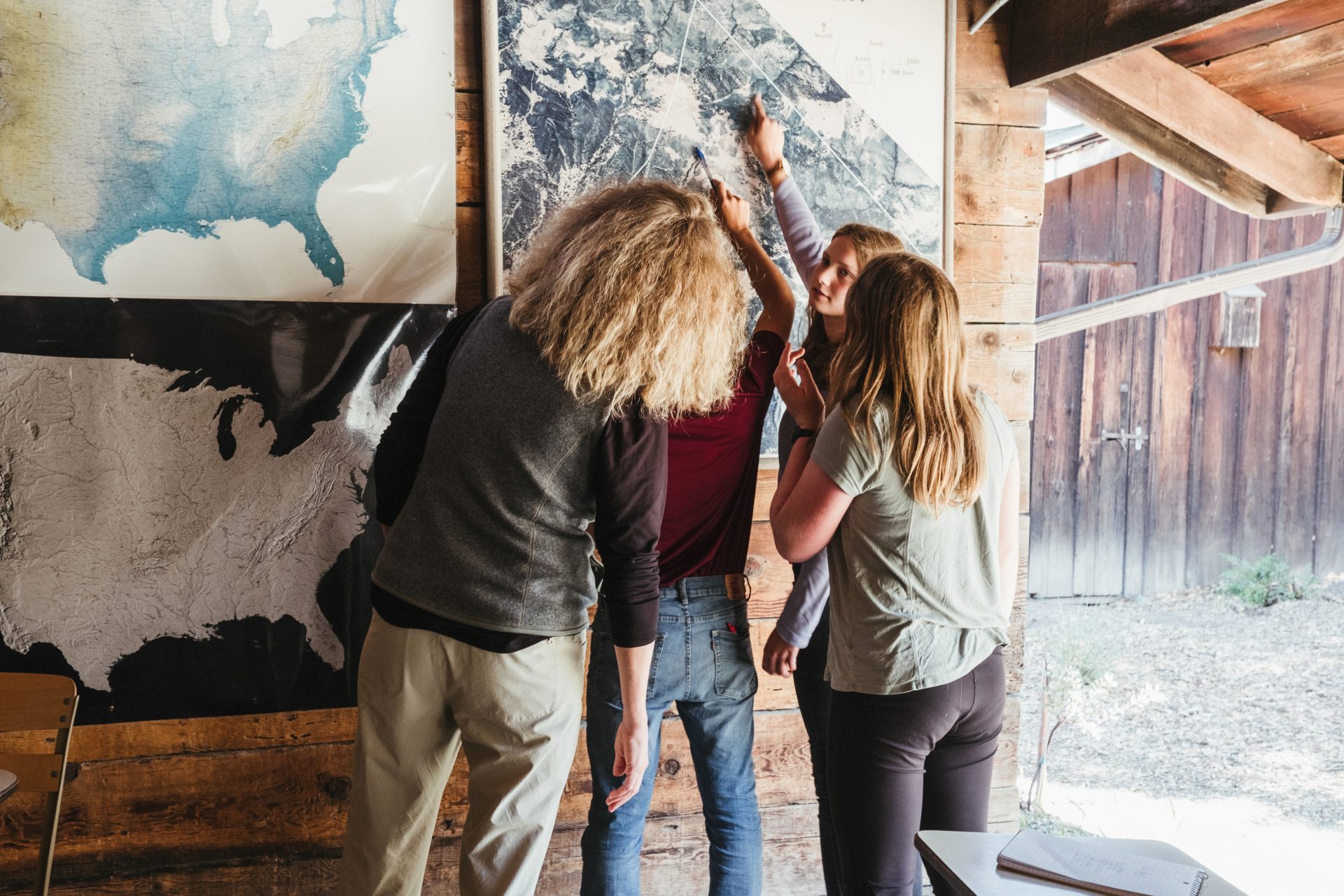Contact Information
-
MAILING : P.O. Box 8, Los Olivos, CA 93441
Diving into Midland's iconic 9th grade class
 Fall 2021
Fall 2021
A common question that students ask us when they first encounter our curriculum: what is Midland 101? A unique class that serves as an introduction to Midland’s vast campus, it helps students start to feel comfortable with the mountains and trails that they will call home for the next four years. So, without further ado, we present to you: “Midland 101” 101, an introduction to our iconic 9th grade science course.
As 9th graders, our students take two “Midland 101” classes: a yearlong University of California–approved natural science class and a semester-long social science course that walks students through a cultural history of the people who have passed through the land that is now Midland’s property, including the Chumash people from whom this land was stolen.
Part of the mission of the course is to help students develop into being the environmental stewards and sustainability-minded leaders of tomorrow. The very first step to caring for a place is to get to know it. This is the reason behind our focus on both the land and the people who have called this place home.
So that’s what our students do: they learn everything from how to use a map to the names of their surroundings to the ecology, soils, trees and everything in between. Once you learn the ecology of the land, a walk past a flower or a bird becomes so much more than just that.
By starting to think of each animal, plant and tree as a new friend, as well as by understanding the ways in which others have cared for the land throughout history, students learn how to properly care for a place, and through doing so build ethical responsibility to it. The intention here is that once they start to care about one place, they will start to care about every place they will call home in the future.
Another fundamental element of our course is to build social consciousness. In delving into the history of colonization and genocide and by building awareness of this piece of our history, our students begin to internally reflect and understand their privilege. Who has historically been comfortable at Midland and, more broadly, in outdoor culture? How can we make outdoor education more accessible to students from all walks of life? How can we acknowledge and pay homage to the Chumash people?
At the end of the day, Midland 101 isn’t so much about whether students remember the names of everything; it matters so much more that they’ve built the skills to get to know any place that they become a part of in the future. The habits and mindset that are cultivated through Midland 101 — asking questions, making observations, working collectively to innovate and create experiences that center diversity, equity, inclusion and justice — are the foundational skills employed not only by scientists but also by good scholars and humans. Our goal is that when a student enters tenth grade — and the rest of their lives — with these skills, they gain a head start to solving different problems and coming up with unique and creative solutions, both inside and outside the classroom.